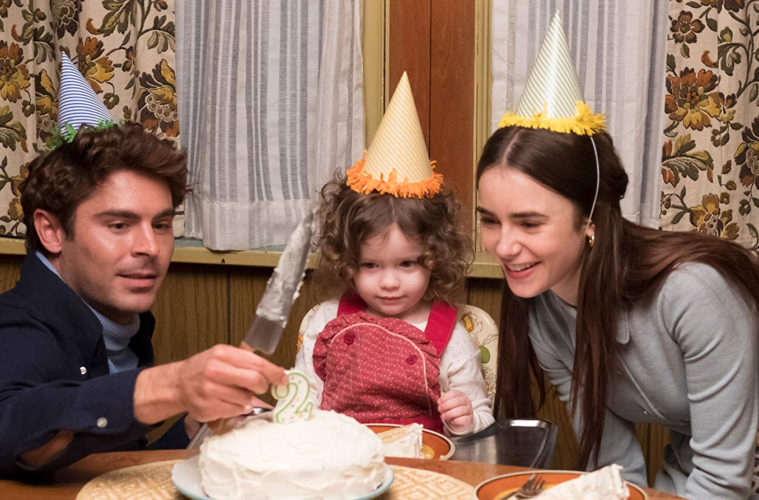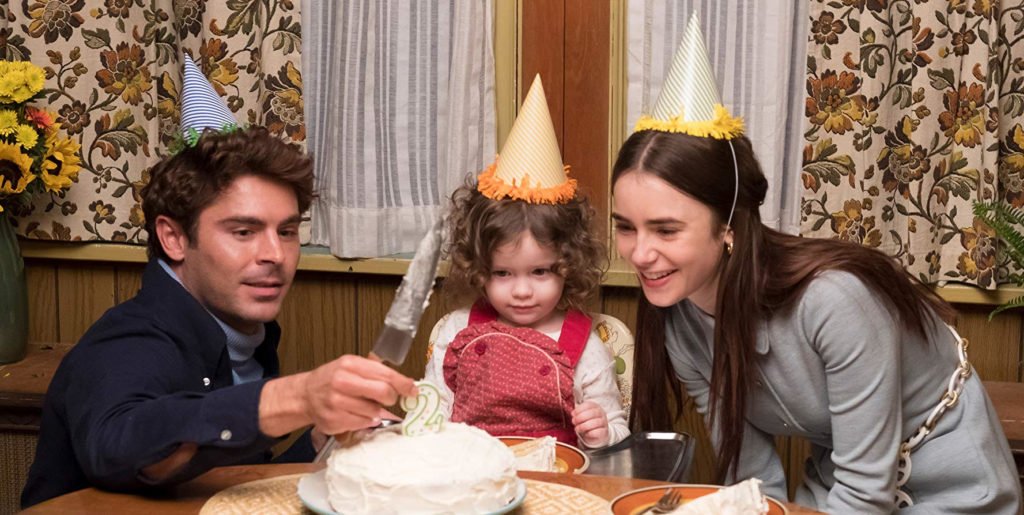For whatever upsetting, deep psychological reason, there’s no questioning that American audiences are currently fascinated with the serial killer. Films and documentaries have been cropping up across every platform for the last year featuring the worst and most unforgiving true crimes of our nation’s history. It’s no wonder, then, that Netflix would embrace the cultural trend (that they may have very well restarted in the first place) with not one, but two recent original films on Ted Bundy, one of the most fascinating serial killers ever known. Still, with their most recent adaptation of the Ted Bundy story, “Extremely Wicked, Shockingly Evil and Vile,” anyone with any shred of decency in their body can’t help but wonder if, maybe, this time, they went a little too far.
The film’s biggest draw, of course, was casting heartthrob Zac Efron in the lead role of Bundy. A long way from his “High School Musical” days, this is Efron’s most challenging and unprecedented role to date, and within it he holds nothing back. His portrayal of the charming mass murderer is impressive, and he nails the minute facial tics and gestures that made watching Bundy so entrancing. He is frighteningly smooth, and at times, as you watch him sweep through the courtroom acting as his own defense, you very nearly find yourself rooting for him, until you remember he is portraying one of the vilest men in modern history.
- Photo courtesy of Netflix
Still, in many ways, this rendition of the Bundy case isn’t just about Bundy, but the relationships he had with the women surrounding the case. Much of the story is told from the perspective of Bundy’s longtime girlfriend, Liz Kendall, portrayed by Lily Collins (“The Mortal Instruments,” “Tolkien”). For most of the film, Collins’ performance appears to arrive somewhat heavy handed, but as she is given more to work with in a script that doesn’t do well to service her character, she slowly but surely alights, especially with the film’s late reveal of what is actually tugging at her soul. She comes around just in time for a haunting rendition of her character’s final visitation with Efron’s Bundy, in a scene that may prevent you from ever looking at Zac Efron the same again. Kaya Scodelario’s (“The Maze Runner”) performance as Bundy’s greatest supporter and eventual wife plays as a wonderful juxtaposition to Collins’ brooding depression and gives a whole different angle for the film to be seen from.
It is these female viewpoints into Bundy’s life that both set the film apart while also causing it its greatest problem. The most troublesome part of the film is that while it worked hard to showcase Bundy’s manipulative charm, it also seemed to accidentally idolize him. Skipping over many of the facts and details of the case was a daring move on the filmmaker’s end, as it allows the audience to step more into the shoes of those who supported him regardless of what was said in court. But at what cost? From a moral standpoint, you can’t help but wonder if that idolization is really a good thing for current audiences. In our violent, turbulent society, do we really need media that is putting serial killers up on pedestals?
Moral questions aside, the film is showcased by beautiful cinematography that, if able, viewers should watch on something larger than their laptop screen. The storyline is somewhat jumpy and mangled, and at times can be hard to follow, but it comes back enough toward the end for the film’s finale to work nicely. Jim Parsons (“The Big Bang Theory”) as Florida Prosecutor Larry Simpson and John Malkovich (“Being John Malkovich,” “Dangerous Liaisons”) as Judge Edward D. Cowart make the film’s court scenes pop. Other problems aside, those scenes are probably what make the film worth watching, just as the clown court of the original trial made the case so enticing in the first place.
“Extremely Wicked, Shockingly Evil and Vile” is streaming now everywhere you can access Netflix.
Advertising disclosure: We may receive compensation for some of the links in our stories. Thank you for supporting Irvine Weekly and our advertisers.


